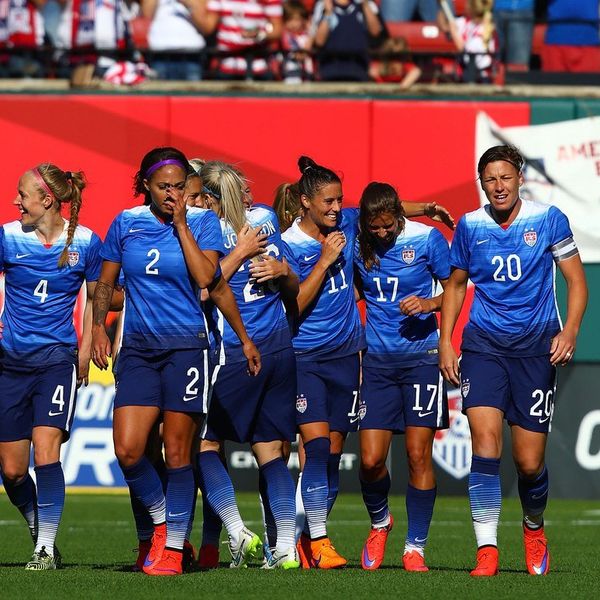The United States' women's soccer team is one of the best soccer teams in the world. Since the FIFA Women's World Cup was established in 1991, the team has won three championships with their most recent victory in 2015. There are many bets that the team will walk away from this year's World Cup with another championship under their belt. Yet, there is one thing these women will not walk away with: equal pay.
The national women's soccer team, despite their superior standings, championships and number of viewers, is paid significantly less than the men's national team. Although these women, including Alex Morgan, Tilda Swinton, Carli Lloyd, and the rest of the team, have performed to the best of their abilities and have succeeded throughout their careers, they do not receive the same annual paychecks as their male counterparts.
Individuals who either deny or accept this gender gap present many faulty arguments. Arguments that support this distinction in pay are centered around thoughts such as "More people watch men's sports" so "The men bring in more money for profit". Other ridiculous arguments like to reminisce the time where a group of fifteen-year-old boys played a scrimmage game against the women's national team and won; therefore, the women on the national team deserve to be paid less than the men because "if a bunch of fifteen-year-old boys could beat them, then they probably are not that good...especially not against men".
However, this specific argument about the scrimmage game versus pubescent boys is ridiculous because why would these women try their hardest in a scrimmage game, especially if it is with younger kids. And even if not, even if the women's team gave their 100% effort in this huge game for their self-worth and dignity against fifteen-year-old boys and still lost -- how would that justify being paid less than men? That just does not make sense at all. Well, sexism doesn't make sense to me either but that's a different article.
Still, this idea that boys are superior to girls at sports is the reason why the struggle for equal pay in athletics is so difficult. Take Serena Williams, one of the world's most talented tennis players in the world, for an example. Despite Serena's astonishing performance and abilities as an athlete, columnists question how Serena would rank amongst all male competitors. One reporter even boldly claimed that a D1 male athlete would beat Serena at a tennis match, justifying his argument by saying that each gender plays a different game of tennis.
Reports such as this are not only sexist because they degrade Serena William's to the tennis-playing abilities of a nineteen-year-old college tennis player but also because they perpetuate the narrative that women are inferior to men in athletics and therefore the inequality in pay is justified.
While men and women might play different types of games in their sport of expertise, it is unfair to assume that an athlete as talented as Serena Williams would cower at the D1 college level just because her opponent is a man. True, men and women might play different types of tennis matches, but even if Serena played a match against a man who played a faster, more intense version of tennis, Serena Williams is the type of athlete who would adjust and adapt to the different pace of the game. It is inaccurate to assume that any time a female athlete versus a man she will lose just because of her gender.
A female athlete should never be paid less than a man on the basis of sex.
The fact that equal pay between men and women is still a controversial debate in our society shows that female athletes have a long way to go until equality. In fact, the U.S. women's national soccer team sued the United States Soccer Federation for "purposeful gender discrimination" this past March. This lawsuit serves as an impetus for change in athletics, and it is up to the United States Soccer Federation to end their discrimination against women on the field that will no longer be tolerated.






















